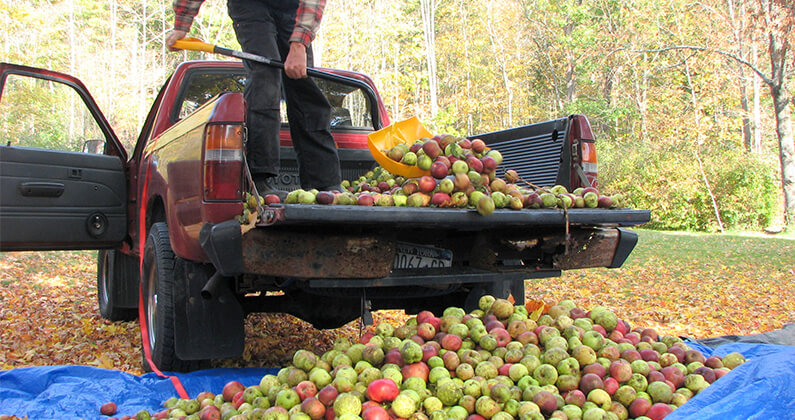The word “truthiness” existed in the Oxford English Dictionary long before comedian Stephen Colbert voiced the term, but his knack for exposing the misleading has brought the concept to the popular forefront. By 2006, Merriam-Webster pronounced it “Word of the Year,” though it didn’t peak there. People still commonly use it — and “fake news” — to describe a cultural phenomenon that continues to blossom.
For those living under a rock, truthiness is when the definitive meaning of words, phrases and statements are tweaked to mislead voters, customers, news or other media followers — like, for example, when omitting parts of the whole story. Whereas 30 years ago there was a limited number of media sources, and those voices were held to journalistic industry standards (i.e., fact-checking), today our oversaturation of media makes it difficult to filter fact from fiction before entering the minds of consumers.
TALK THE TALK
So what’s this have to do with cider? To illustrate how this could affect our rather harmless industry, take the term “dry” as an example. On a scale of 1 as dry and 10 as sweet, if a cider stands at 7, to make it seem “less sweet” a producer simply needs to change the parameters — omit knowledge of the bottom six degrees, and now 7 is relatively dry. Other examples of parameter shrinkage in cider can be applied to “tannic,” “balanced,” “full-bodied” and dozens of other descriptive phrases that customers might assume are based on a definitive standard.
Not everyone is OK with this. Talk of standardized diction on the packaging and labels of cider has hit the streets, and now regional and national institutions are jockeying to set the terms. Groups, including trade associations and those with lobbying connections, are advocating for measurable and enforceable terms, much like beer’s IBU rating or Champagne’s dryness scale. Customers might also appreciate categorical labeling of SO2 and CO2 levels, acidity and mineral content.
Though this would surely help navigate selections, but that’s just the tip of the iceberg as there are thousands of other quantifiable statements like these that a producer could confess. If the truth is what the customer wants, other trade groups are already advocating for the full disclosure of fruit sourcing, agricultural practices, milling and fermentation methods, and producer scale, too. Concerning marketing standards, the real question is how far shall we take them, and who gets to choose which ones?
OPTIONAL OUTCOMES
Like most farmers, I’m not in favor of pressures or regulation forcing me to use perfunctory language capable of detouring customers from a direct relationship with my trees, my craft or myself. If consumers merely judge my ciders by someone else’s strategically chosen standards they’d be missing the point, forfeiting power to a translator, a middleman. That said, I don’t want to live in a world of direct trickery either. My fear is that industry-wide truthiness will further alienate critical drinkers from a sector already dominated by medium- to low-quality cider.
Ultimately I trust these actions will all play out for the best and two distinct markets will see two different outcomes. If cider is an art or farm product, then the artist and farmer should define their own terms, build their own relationships and explain to customers what matters about their product. Consumers of this market must explore hundreds of options, dig deep and not allow labeling or marketing to stand in for the whole story. Personally, I think that’s a good thing.
But if producers and customers want another market, a larger one that operates on common language, then we can expect the conversation to stay within the confines of a level playing field. Bottle labels couldn’t possibly quantify all the factors behind the taste of a product, but at this scale, many producers and customers may just be happy letting words and measurements stand in for the effort. At this point in time, everyone knows “sleuthiness” can fight truthiness.
Andy Brennan is the farmer, fermenter and founder of the Aaron Burr Cider in New York’s Lower Catskills. An artist by training, cultural critic by temperament and drinker by ethnicity, he can now add writer to the list: His book “Uncultivated” is due out in 2019, published by Chelsea Green. This article originally ran in the Vol. 12 print edition of Cidercraft magazine. For the full story and more like it, click here.





